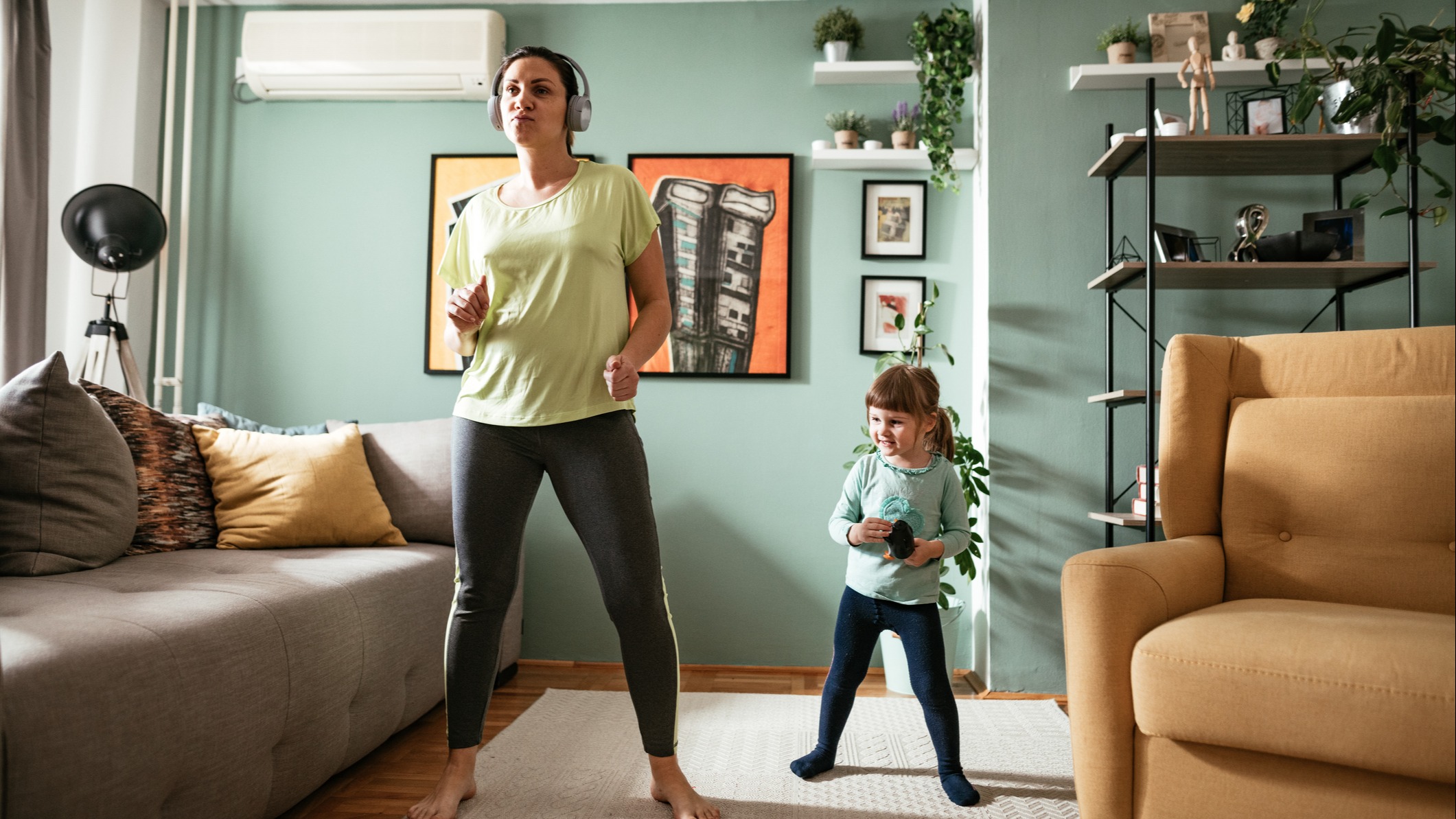
According to Johns Hopkins Medicine, approximately 1 in 4 adult individuals living in the United States suffers “from a diagnosable mental disorder in a given year.” If you do the math, that means that many of those people who struggle with their mental health are parents who are trying to give their kids a decent and happy childhood as they try and navigate mental health struggles.
Keeping that in mind, when you’re someone who lives with a mental health disorder — whether it’s anxiety or depression or OCD or bipolar disorder — there are going to be times when life gets hectic and overwhelming. During those moments when your mental health starts to dwindle, they can feel even more difficult when you have children because you are hyper aware that they need a present parent who is there for them.
For parents who need to put their mental health first, there are certainly ways you can get through the tougher times and get back to making your mental health a top priority. Keep reading to find out some doable ways you can put your mental health in the forefront, even when you have kids at home who need you.
Put something on the weekly or bi-weekly calendar that exists simply to fill your own cup.

You know that whole analogy about putting on your own oxygen mask first when you’re on a plane experiencing heavy turbulence because otherwise, you’re going to be no good to the ones around you who might need help. If you’re a parent who is consistently putting the needs of others before your own and you’re really starting to feel it, it’s time to take a look at the calendar and schedule some things strictly focused on your happiness.
Studies have proven that engaging in creative activities “can lead to an improved sense of well-being” and making social connections can help those experiencing symptoms of depression and anxiety. So, whether you sign up to attend a Pilates class with your girlfriend once a week or take a watercolor class at your local community center, once you have something that’s just for you and doesn’t involve coordinating anyone else’s schedule or needs, it’s bound to help you achieve a clearer mind and feel more fulfilled when you’re at home with your family.
Make a habit of saying no more often to things you don’t have the mental space to take on.

There is often so much guilt in parenting because even if you feel like you don’t have another tiny fragment available in your mind to give or the time and energy to commit to another activity, especially if you feel like it’s going to make your kids happy, you’re more likely to try and make it work. The thing is though, there is beauty in saying no to things, especially concerning your mental health.
Whether your child really wants to have a big sleepover this upcoming weekend or you have the mom group at school asking for more volunteers for the upcoming bake sale or field trip, especially when your overall mental health is starting to deteriorate, it’s likely best to make it a priority to say no to things more, even if it’s a habit that feels foreign or uncomfortable to you.
Sometimes that insurmountable pressure to be the best parent in the world can be the absolute worst thing for our mental health. It’s actually OK for our kids to see that sometimes we need to say no for our greater good or simply because our plate is already full of things that take priority. It’s not great for the health of our minds to try and add something else that’s going to add even more stress and anxiety to an already busy life.
Be sure to organize time to speak to your spouse, a therapist, or even a trusted friend about whatever’s going on in your life.

When you’re a busy parent who has a million things on their mind as they try to tend to everyone else’s needs, there are going to be times when your mind starts to feel a bit jumbled and you may even find it difficult to properly express how you’re feeling. This is one of the many reasons why it’s crucial to make the time to speak to someone when you’re a parent with mental health issues.
Whether you need to set aside 30 minutes each week to speak to your spouse without the kids present to discuss anything from household logistics to how your promotion at work is making you feel overwhelmed. Or schedule a bi-weekly call with a therapist who is going to help you work through your emotions and come up with a solid plan for dealing with life’s stresses. Even texting a trusted friend and asking them if they have 20 minutes to speak on the phone can help clear the pipes and allow yourself that sounding board who’s supportive and nonjudgmental so you can move through your day with a little more focus and stability.
Sticking to a routine can help relieve feelings of mental distress.

For parents who suffer from anxiety, there can be those triggering bouts of time throughout the year when their schedules are overloaded and things start to slowly but surely unravel in terms of how we communicate with our loved ones to how we decipher and listen to that nagging voice inside our head who tells us that we’re not doing a good job as a parent.
The Kelty Mental Health Resource Centre suggests that if you’re looking to keep your household as stress-free as possible, it’s a good idea to create a consistent routine that both you and your family can stick to and count on. For instance, the Canadian mental health organization explains that even if it’s something as simple as sticking to an after-school activity schedule that feels right for the family and doesn’t overwhelm your time, having a plan and a routine for parents who experience mental health issues can aid in creating a more stable and organized household that’s less anxiety-inducing on the day-to-day.
Don’t be afraid to discuss your mental health struggles with your children.

Even though things have gotten a lot better in recent years, there can still be a stigma surrounding the issue of mental health, especially for women with children because society often makes them feel like they need to be able to juggle it all. The Mental Health Commission Of Canada notes that “it’s important for parents to have open and honest conversations with their children about mental illness” and provide age-appropriate details that can help them understand their parents’ mental health struggles.
More from LittleThings: How Do You Tell Your Partner That You're Completely Burned Out & Overwhelmed?
The mental health organization explains that talking to your children openly about what you’re going through, even on a very basic level, not only opens those doors to more discussions as they get older and find themselves experiencing similar struggles, but it helps them to become more compassionate and empathetic young people.
Put your mental health first and seek treatment when needed as your kids will always benefit from this in the long run.

One thing that cannot go on the back burner for when life finally calms down a bit or your schedule becomes a little less hectic is properly dealing with and caring for your mental health. Riviamind.com explains even being a parent and caring for small children should not stop you from seeking mental health treatment because often, “the longer you wait, the worse [your] symptoms will become.”
If you find yourself struggling for some time and you haven’t discussed seeking treatment with your partner or a caring family member who might be able to step in while you go to the doctor or speak to a psychologist, it’s likely time to have that conversation. The mental health organization also notes that in modern times there are a ton of telehealth options, which can be such a gift for busy parents.







